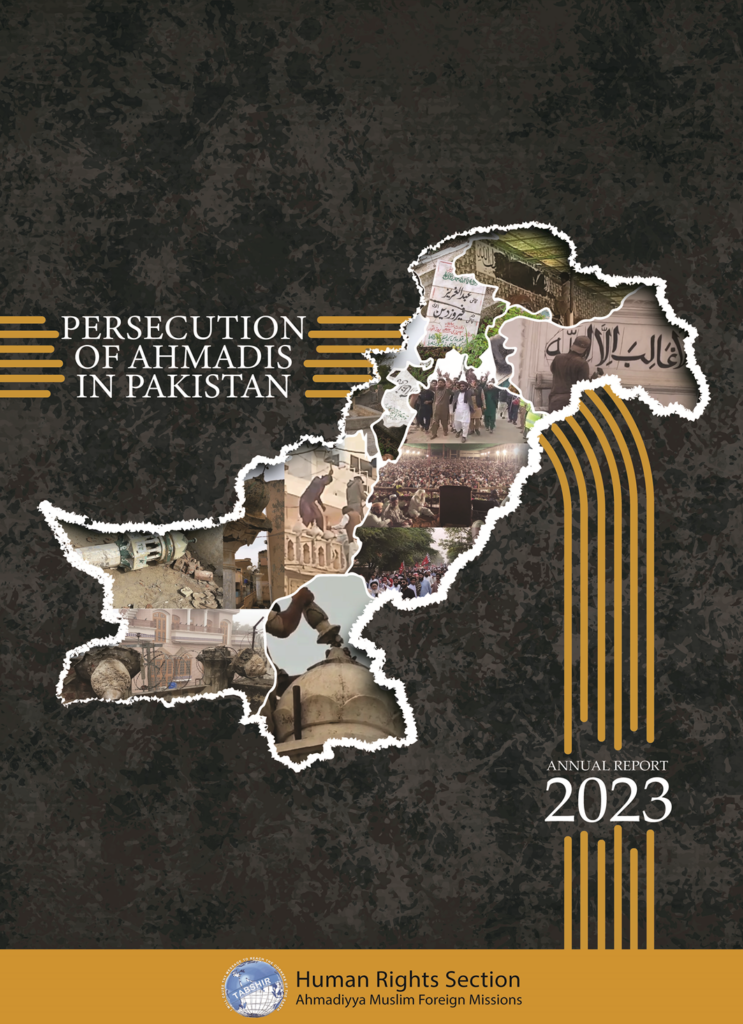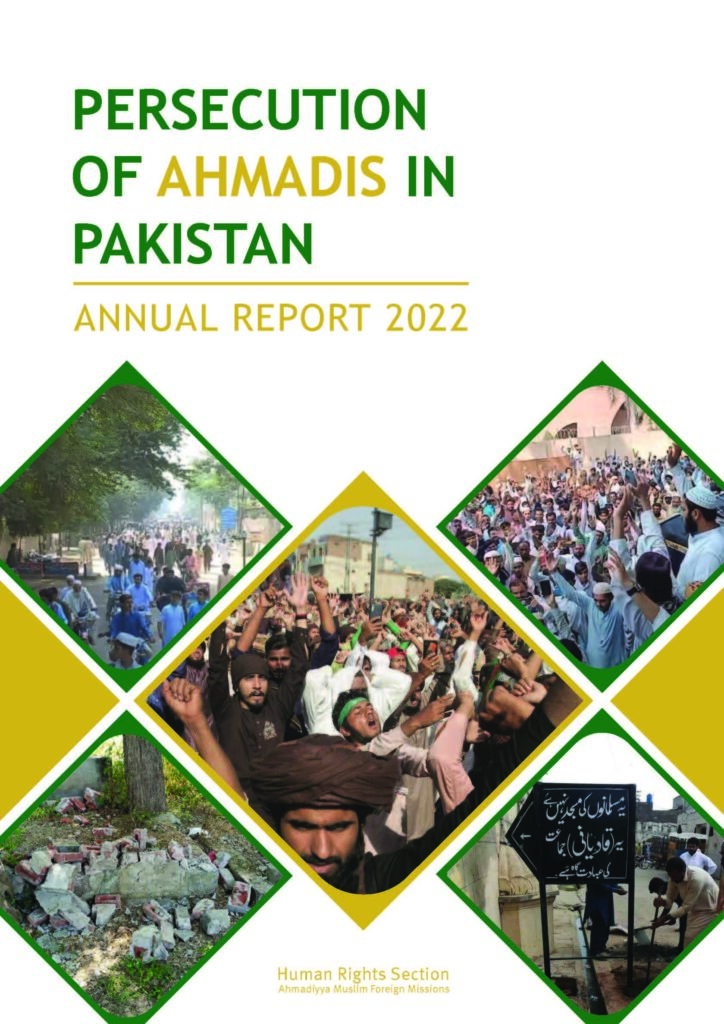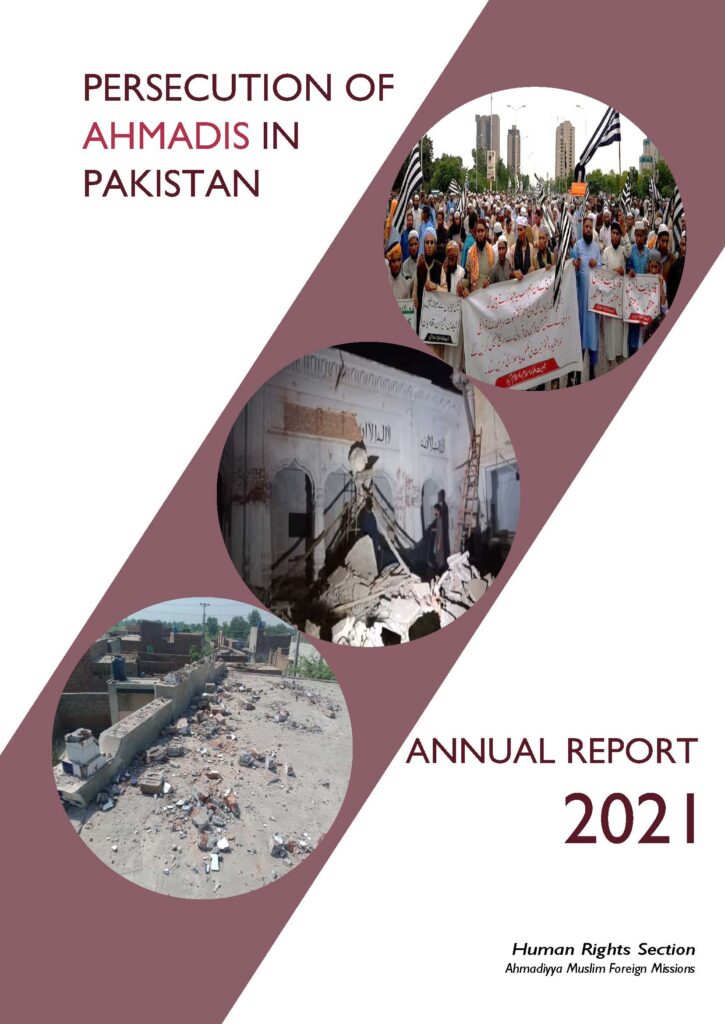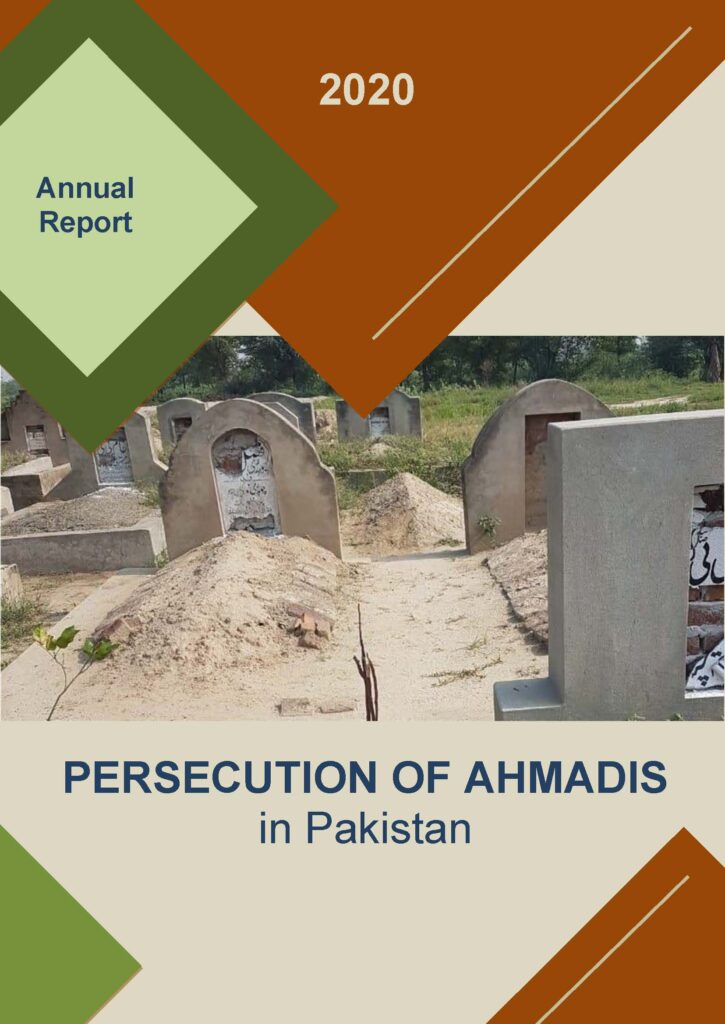
This is the second consecutive annual report published by the International Human Rights Desk, which has since last year assumed the critical responsibility of documenting the persecution of Ahmadis on behalf of the Ahmadiyya Muslim Community.
Building on the comprehensive work initiated in our first year, this year’s report continues to meticulously chronicle the systematic challenges and human rights violations confronting the Ahmadiyya Muslim Community, with a particular focus on the escalating violence and institutional discrimination in Pakistan and Bangladesh.

Here, we present yet another annual report on the persecution faced by the Ahmadi community in Pakistan, albeit with notable distinctions. This year witnessed a significant escalation in the desecration of Ahmadi worship places by both authorities and religious extremists compared to preceding years. Additionally, a prominent cleric publicly advocated, “If an Ahmadi’s house is on fire, you should pour petrol on it, not water.”
In addition to the comprehensive narratives featured in the main chapters, this report includes an Executive Summary, Spotlights, Conclusion, and Thematic briefs to facilitate readers in navigating sections according to their available time. A catalogue of prevalent rights violations and a set of recommendations are also provided. Chapter 1 delves into three crucial stories presented in considerable detail, accompanied by lists of Abbreviations and a Glossary for reference. Furthermore, the ‘From the Media’ section encapsulates significant news and perspectives pertinent to the human rights of Ahmadis, both directly and indirectly.
In the political landscape of 2023, the federal government was led by the Pakistan Democratic Movement (PDM), succeeded later by a Caretaker Prime Minister. Initially, the provinces of Punjab and Khyber Pakhtunkhwa were governed by Pakistan Tehreek-e-Insaf, and Sindh was under the control of Pakistan People’s Party until caretaker administrations assumed control in these regions. These governments garnered significant support from influential quarters.
It’s imperative to recognize that the persecution inflicted upon Ahmadis not only harms them individually but also damages the national fabric and societal cohesion. It is our hope that a thorough examination of these contents, presenting a comprehensive narrative of facts and realities, will compel both domestic and international stakeholders, including the powerful, the elite, and the deeply concerned, to take decisive and sustained action towards effecting the necessary change in Pakistan’s governance. Extending support to the marginalized Ahmadi community will undoubtedly catalyze efforts to steer the nation towards a trajectory of peace, progress, and prosperity.

2022, WAS ANOTHER HEAVY YEAR in persistent, uninterrupted and severe persecution of Ahmadis in Pakistan. There was no let-up, even though there was a major change in the government at federal level in April. It seems that the present system and the current set of prominent politicians have no intention to restore basic rights and freedom of religion of Ahmadis.
While the past anti-Ahmadi practices continued as before, this year the state and society came up again with fresh innovations not heard of before. For example, a madrassah graduate stabbed an Ahmadi to death in broad daylight at the bus stand in Rabwah. He had never known the victim before. This was the first time such a murder happened. At Karachi, the police registered a criminal case against an Ahmadi advocate for his name ‘Syed’, on complaint of religious bigots. Another case in this category of pioneering persecution was a notice posted on a public van demanding Ahmadi passengers to ‘first enter Islam before entering this vehicle.’ So the content of this Report is not a replica of the past reports.

HERE IS YET ANOTHER ANNUAL REPORT as bulky and deplorable as earlier ones in the context of persecution of Ahmadis in Pakistan. The PTI government that was elected by the people in 2018 on a promise of CHANGE persisted in its policy of bringing about no change in the plight of the marginalized Ahmadiyya community.
In fact, the situation worsened greatly in the province of the Punjab, where PTI rules jointly with PML-Q led by Chaudhry Brothers. This province broke its own record of violating the sanctity of Ahmadiyya places of worship and graves, by the state authorities. This aspect is specially grisly and repugnant as it hurt the Ahmadis in their most sensitive areas. These stories are available in Chapters 4 and 5.
The grim situation in the governance of the Punjab had its prime-movers in the august Punjab Assembly and the worthy High Court. The Assembly repeatedly addressed important issues through the channel of religion, while some judges of the Lahore High Court exhibited their ‘piety’ by acting very tough against Ahmadi accused. The provincial administration, when dealing with Ahmadi issues, seemed to hand over the writ to the mulla — mostly of TLP and TTP who felt elated in worsening the state through the space made available to them in this sphere. These stories, although lamentable, make interesting reading, and are available in Chapters 7 and 8.

Persecution of Ahmadis in Pakistan remains like a dark tunnel at the end of which there is no light visible — still. Hence the annual report for 2020 is somewhat similar to the earlier ones, but more distressing in some ways. A read of the entire text will show that the state and a section of society in Pakistan are committed to persecute Ahmadis to an unbelievable extent. One can get some idea of the general nature and extent of Ahmadis’ plight by going through sections like the Executive Summary, Spotlights, For the Record, Summarized Thematic Info, provided prior to the serialized chapters. A look at the Annexes will also be worthwhile.
The foremost story at Chapter 1A, “PTI Government and Ahmadiyya Community in Pakistan” is a brief that covers the entire two years and four months of the present regime. It provides a useful overview of the Ahmadis’ human rights experience, and is also a telescope for the likely future — unless there is a big upheaval that changes the parameters of the national scene. Chapter 3 lists all the Ahmadis who are behind bars at the end of the year 2020. A very brief narrative of each case is provided which deserves special mention for their stress and suffering. One can imagine the distress of their kith and kin, who know that their dear ones are innocent of any wrong-doing.